
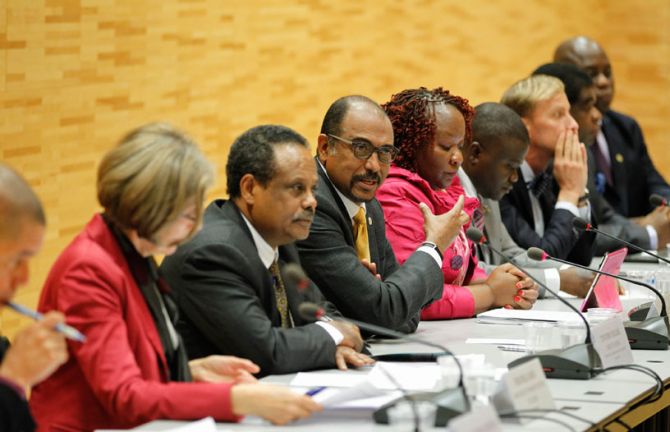
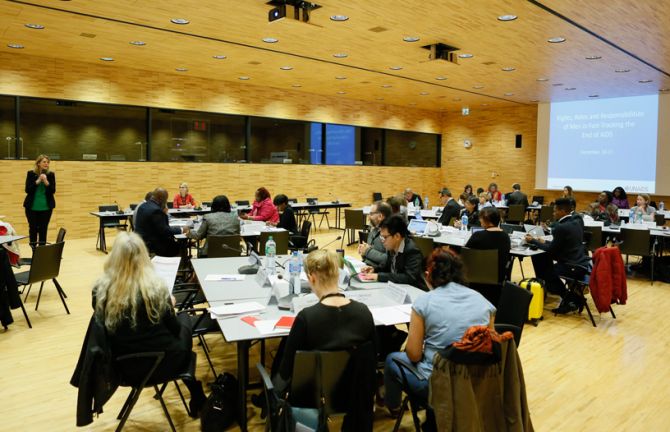
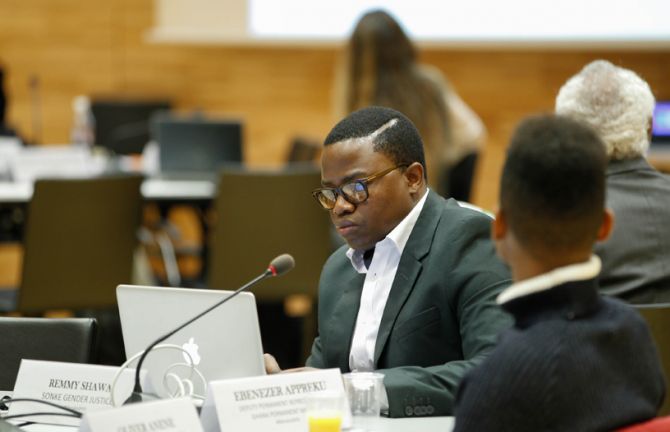
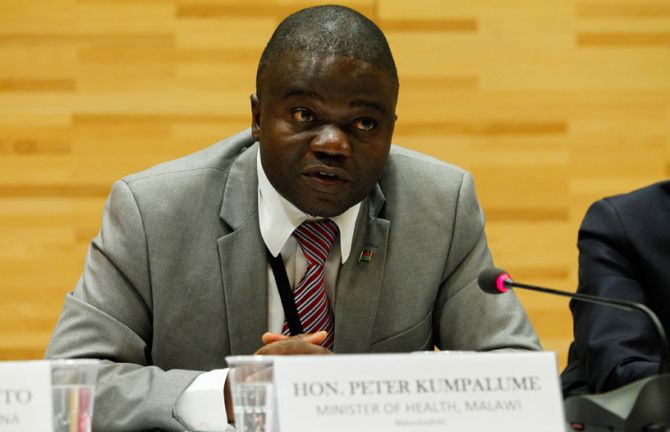
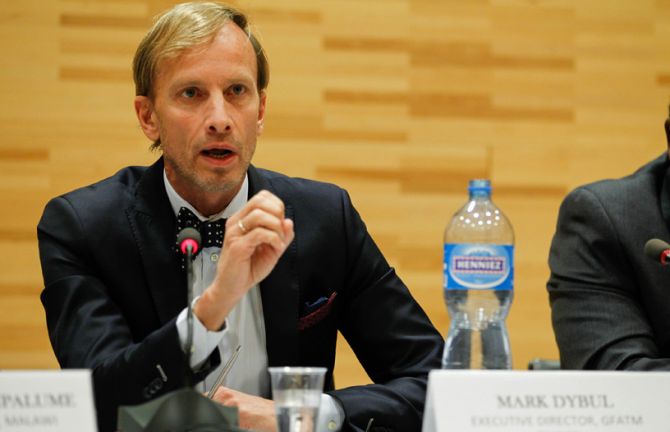
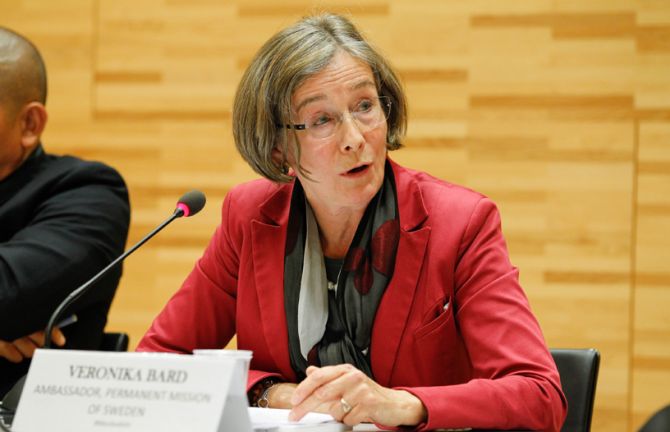
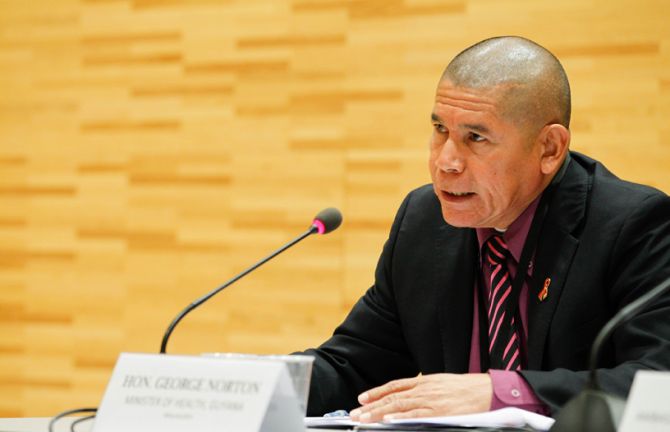
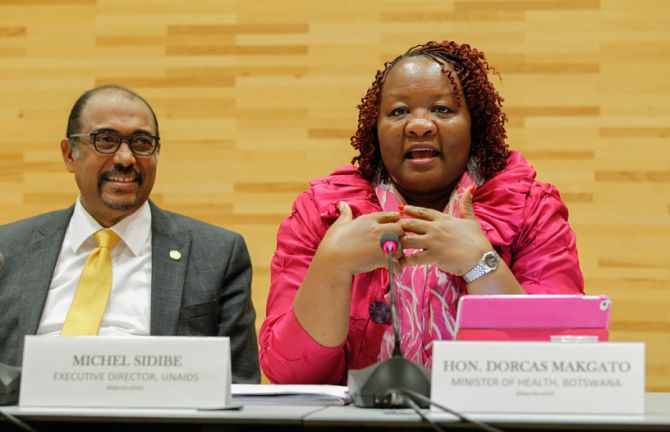
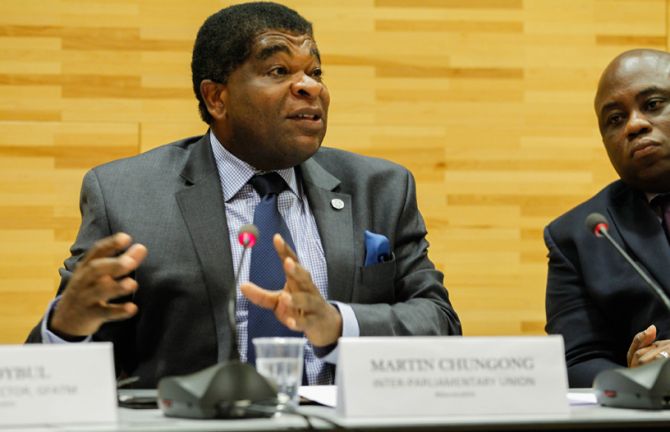
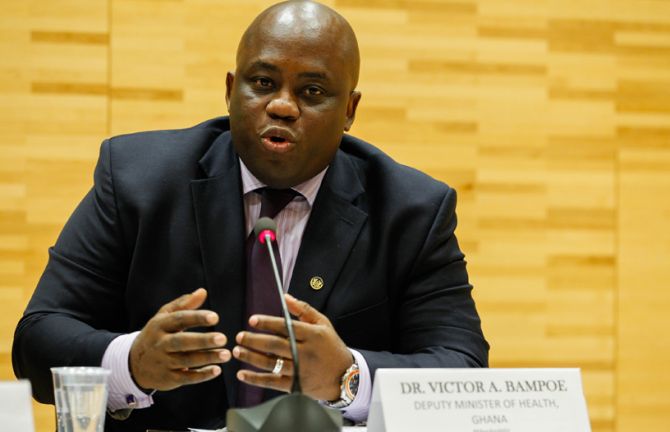
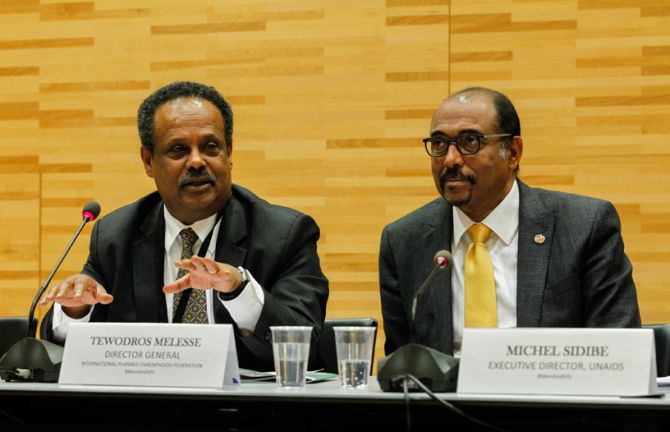
Update
Rights, roles and responsibilities of men in ending AIDS
16 December 2015
16 December 2015 16 December 2015UNAIDS, together with the International Planned Parenthood Federation and Sonke Gender Justice, convened a high-level meeting on the rights, roles and responsibilities of men in ending AIDS. More than 70 participants—including ministers of health from Botswana, Malawi and Guyana and the Deputy Minister of Health for Ghana—gathered from 10 to 11 December in Geneva, Switzerland, to map out a course of action to reframe the response to the AIDS epidemic among men and adolescent boys.
A growing body of evidence shows that access to HIV services for men and boys is typically worse than for women and girls. This poor access leads to higher viral loads, higher numbers of deaths of men and more infections among their female partners.
The participants noted that the structure of health services and existing gender norms and perceptions of masculinity increase vulnerability to HIV and affect how men and adolescent boys seek access to health-care services.
Programmes that work to address these issues were reviewed and consensus agreed on moving beyond language and terminology that blame men. It was noted that expanded efforts in this area cannot be achieved in isolation from ongoing efforts to advance gender equality. The meeting laid out a platform for action to be taken between now and the High-Level Meeting on HIV and AIDS in June 2016.
Quotes
“If we don’t reach men and boys, we won’t break the cycle of HIV transmission. Engaging with the education sector is critical for influencing positive gender norms.”
“We need to fix underlying problems in society in order to end diseases like HIV and tuberculosis. We won’t achieve any of the Sustainable Development Goals if we don’t have gender-balanced work.”
“This is a very important meeting to come up with a position on how men can play a better and bigger role in the fight against HIV. We do realize that we have left them behind in terms of various initiatives, and I strongly believe it is important that we mainstream in order to sustain the fight against HIV, and we cannot do it without the men.”
“The role of men and boys in ending AIDS is really important: I cannot overemphasize this enough. We need to engage young men, especially adolescent boys, in the conversation; they are the ones hardest hit by the epidemic and therefore they need to be brought to the table.”



